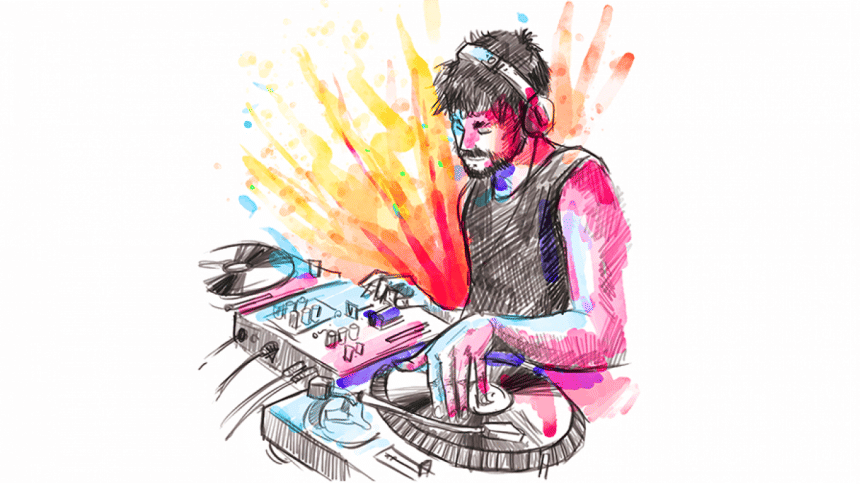THE MIX AND MASTER OF AUDIO ENGINEERING

We all perform a bit of audio editing from time to time, be it setting the acoustic solo of our favourite song as our phone's ringtone or creating that "gaayeholud" dance mash-up (including fade effects). What you're doing is something that is part of a broader spectrum – audio engineering. If you enjoy experimenting with audio tracks and want to delve more into this field, keep reading!
What is audio engineering?
Audio engineering involves fine tuning and/or working with the technical angles of sound during the process of recording, mixing and producing. Simply put, audio engineering skills are responsible for the soul soothing, aural desserts you hear in music.
How should you get started?
Although the existence of certified degrees or courses is not necessarily known of in Bangladesh, it is not entirely impossible to learn to master this field. Most are self-taught or have pursued their studies in this field abroad. For those who prefer keeping things affordable, there are numerous online materials to learn from, be it books or tutorials on YouTube that are available for free. However, some quality and certified courses do come with expenses, especially on websites such as Lynda.com, Udemy and Coursera. Financial aid is also available in some of these courses, which often helps gain access to resourceful materials.
Raihan Mahbub Rasha, who is the Founder of Hungry Dog Studio, says it's the era of YouTube and that there is an abundance of resources online to get started. "Download free raw sample sounds of instruments, learn how to mix from YouTube and then try replicating what you hear on your own! This also helps find one's own taste and style of creating sounds."
The most basic equipment include a DAW (Digital Audio Workstation), a MIDI keyboard, some outboard gears (if one can afford), and a lot of patience, as recommended by Rasheeq Rayhan, CEO of The Rock Project Dhaka, which is to begin operations from June. What matters more though is the need for regular, focussed practice by means of in-depth learning. "Audio engineering is a very hard skill to master and one can easily get frustrated towards the beginning. It is also difficult to learn on a practical basis without the right equipment," he adds.
Well, if you want to start learning, don't plan, start working. As I said before, this is the era of YouTube. "I was self-taught from the very beginning using books and tutorials as primary learning materials. I also used to take tips from various local and international sound engineers. I completed an online course on Audio Engineering from the prestigious Berklee College of Music with 100% mark certificate. Although I started it as a hobby, I intend to take it as a profession some day," says Rasheeq.
"The basic software can be Fruity Loops (any version, latest preferred) but if you have the intentions of working professionally then I'd recommend using Cubase, Pro Tools or Logic Pro (Mac users)," recommends Rasha.
The current demand in Bangladesh
Apart from the ubiquitous production houses sprouting up every now and then, the demand for expert and creative sound engineers are quite high. Income ranges vary based on experience and output. Freelancing is always an option, but positions such as recording specialist, mixing and mastering engineer, broadcast engineer at radio stations and TV channels provide a much stable source of satisfactory income.
Communities
When engaged in creative skill building, it is important to receive constructive criticism regarding your work to better develop yourself. There are a number of online platforms to get feedback, be it Facebook groups or
Soundcloud communities. However, it is often advised not to jump to such diverse platforms and initially depend on a trusted, experienced and if possible, professional source. Online platforms tend to have people of all levels of skills and opinions, which may not necessarily help get the constructive criticism that is much needed to begin with.
One can, however, try to follow the different styles and work of local and international professionals in order to better analyse and understand what it means to get creative with sound.
Sound engineering is another form of art that still hasn't been fully explored and promoted on a mass scale in Bangladesh. It is an important set of creative skills that add the final aura to the music and everyday jingles you listen to. So why not try out a few online materials and see (or hear) what you've got?
The writer is a junior at the Institute of Business Administration, University of Dhaka

 For all latest news, follow The Daily Star's Google News channel.
For all latest news, follow The Daily Star's Google News channel. 



Comments